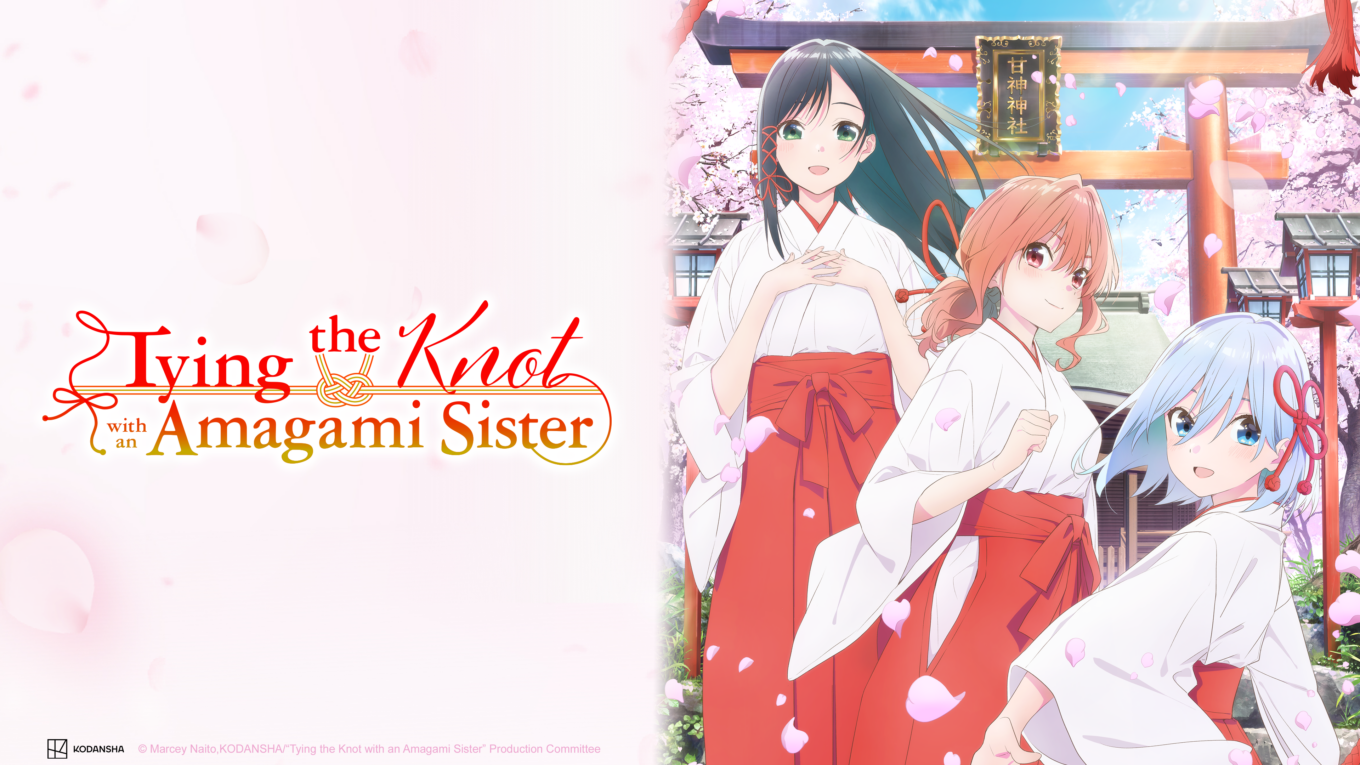English Dub Season Review: Tying the Knot with an Amagami Sister Season One
If you have been an anime fan for any more than a few years, you’re probably familiar with the Harem genre, where a hapless protagonist, usually male, finds themselves entangled with a wide assortment of potential romantic interests, most of which are typically female. It’s a story template that can sometimes lead to charming and heartwarming stories, but also some of the most emotionally cheap and exploitative moments that anime as a medium is known for. So, where does the subject of this review, Tying the Knot with an Amagami Sister, fall in that bell curve? Well, right about in the middle, as it indulges in basically all the same tropes and cliches you might expect if you’ve seen any handful of Harem anime, but doesn’t completely fall back on those to tell its story. The show follows Uryu Kamihate, an aspiring doctor, who finds himself shacking up at a local shrine and told in order to stay there, he must agree to marry one of the three Amagami sisters, who inherited the shrine: The unfocused older sister Yae, the fiery middle sister Yuna, and the mischievous youngest sister Asahi. And since Asahi is fourteen, that really only narrows it down to Yae and Yuna, not that the show will tell you that.
Having seen plenty of these kinds of shows myself, I’ve come to learn that what really makes a good and impactful Harem show is actually what makes a good ANY type of show: having good and likable characters who we can root for, even if they’re not likely to get the love interest they want. And by the end of this season, I think they do just that for the main cast. Uryu starts out as a prickly skeptic of the faith the sisters have in their gods, but learns to warm up to it as he sees how that faith pushes them forward (and also by becoming a victim of several ghostly pranks). Yuna learns to rely on others rather than try to barrel ahead herself. Asahi learns she doesn’t have to choose between her passions and her family, but she has to make decisions herself. And Yae…well, I don’t think she really changes all that much, but she’s a fun enough character that it’s mostly excused. The show also balances the usual harem shenanigans with a mix of spiritualism and fantasy, each time using the supernatural to flesh out a character’s motivations or resolving an issue or even just to explain their backstory, all the while hinting at a greater presence that will likely get expanded on in a later season.
While it most definitely indulges in the more cringy aspects of its genre, down to the excessive nudity, double entendres, and so on, it has just about enough heart to overcome those faults. For those who are unabashed fans of this type of show, there’s little doubt that they’ll enjoy it just fine without any caveats. For those who don’t, well, then you may struggle a bit and likely drop it once it becomes too much. But on its own merits, it’s a perfectly fine example of its type and a serviceable adaptation of its manga, so it will more than likely get the support it needs to get further seasons. Personally though, I would really like them to jump ahead a few years to when everyone is a legal adult so I don’t feel nearly as uncomfortable watching this week after week like I have. But maybe that’s just something I need to get used to this, lest I be thrown back in time or into a time loop or switching bodies or something. You never know.













"There are also other characters that come and go (also owned by the Warner Bros. Discovery conglomerate media company)."
Huh. Is that just referring to other characters from the show itself, or is this implying that the new season is going to have cameos from other WBD IPs